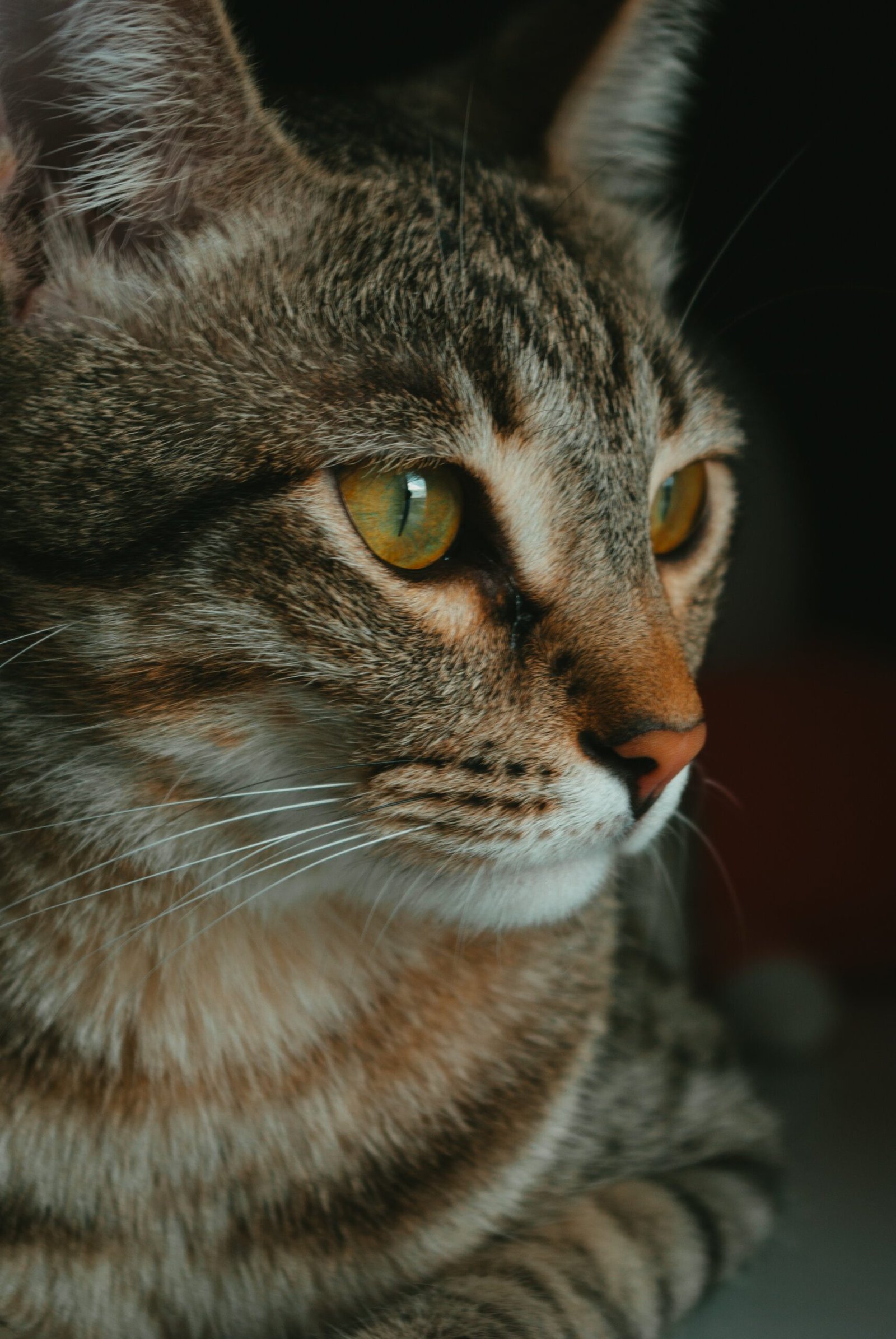Table of Contents
Have you ever wondered if it's possible to buy a capybara in the US? Well, the answer might surprise you! Known for their adorable appearance and friendly nature, capybaras have become increasingly popular as exotic pets. While it may seem unlikely, owning a capybara is indeed legal in some states in the US. However, before rushing off to find one, there are important considerations and regulations that you need to be aware of. So, if you've been dreaming of having a capybara as a pet, keep reading to find out more about how to make that a reality.

Regulations and Laws
Federal Laws
When considering owning a capybara as a pet, it is important to understand the regulations and laws surrounding their ownership. At the federal level in the United States, there are no specific laws that prohibit or restrict the ownership of capybaras. However, it is essential to remember that federal regulations related to exotic animals and wildlife still apply. This means that individuals must comply with laws concerning the importation, trade, and sale of capybaras.
State Laws
While there may not be federal restrictions on owning capybaras, it is crucial to consult state laws before bringing one into your home. Each state has its own regulations regarding exotic pets, and some states may have a ban or require a specific permit for owning capybaras. It is necessary to research and understand the laws in your particular state to ensure compliance and prevent any legal issues.
Local Regulations
In addition to federal and state laws, it is also important to consider local regulations that may exist in your area. Some cities or counties may have specific ordinances or restrictions regarding the ownership of exotic animals like capybaras. These local regulations can vary significantly, so it is essential to check with your local government to determine if there are any restrictions or permit requirements in place.
Capybara as Pets
Popularity as Exotic Pets
Capybaras have gained popularity as exotic pets in recent years. Their unique appearance, friendly demeanor, and similarity to small dogs make them incredibly appealing to many people. However, it is essential to note that capybaras may not be the right pet for everyone. They require specific care, attention, and socialization to thrive in a domestic setting.
Suitability as Pets
Before deciding to bring a capybara into your home, it is crucial to consider the suitability of this species as a pet. Capybaras are highly social animals that thrive in groups, so they require a considerable amount of interaction and attention from their owners. They are also large animals and need adequate space to roam and access to water, as they are semi-aquatic creatures.
Capybara Characteristics
Capybaras are the largest rodents in the world, and their unique characteristics make them both fascinating and challenging pets. They can grow up to 4 feet in length and weigh between 77 and 150 pounds, so they require ample space to move around comfortably. Capybaras have webbed feet, allowing them to swim exceptionally well, and they are herbivores, mainly consuming grasses and other plant materials.
Caring for Capybaras
Caring for a capybara involves providing them with a suitable environment, proper nutrition, socialization, and veterinary care. They require a spacious outdoor enclosure with access to water for swimming and cooling down. Capybaras also need a balanced diet consisting of high-quality grasses, fresh fruits, and vegetables. Additionally, regular veterinary check-ups, vaccinations, and preventive treatments are necessary to maintain their health and well-being.
Capybara Cost
The cost of owning a capybara includes both initial expenses and ongoing maintenance costs. The initial costs may include purchasing a suitable enclosure, providing fencing or secure boundaries, and obtaining the necessary permits or licenses. Ongoing expenses include food, veterinary care, bedding, toys, and other supplies. It is important to budget for these costs to ensure you can provide the necessary care and support for your capybara.

Importing Capybaras
Importation Regulations
Importing a capybara into the United States requires compliance with specific regulations. Since capybaras are considered exotic animals, they fall under the jurisdiction of various wildlife and importation laws. These regulations are in place to protect both the capybaras themselves and the native wildlife from potential diseases or invasive species.
CITES Convention
The Convention on International Trade in Endangered Species of Wild Fauna and Flora (CITES) is an international agreement that regulates the trade and importation of various animal species, including capybaras. This convention aims to ensure that international trade does not threaten the survival of species in the wild. Before importing a capybara, it is essential to understand and comply with the CITES regulations, as failure to do so can result in legal consequences.
Required Permits
To legally import a capybara into the United States, individuals must obtain the necessary permits and documentation. This typically includes permits from both the U.S. Fish and Wildlife Service (USFWS) and the Animal and Plant Health Inspection Service (APHIS). These permits demonstrate compliance with importation regulations, and failure to secure them can result in the confiscation of the capybara and potential legal repercussions.
Quarantine Procedures
Upon arrival in the United States, capybaras imported from other countries are generally subject to quarantine procedures. This is done to ensure that the animals are healthy and free from any potentially transmissible diseases. Depending on the specific regulations, quarantine periods may vary in length, during which time the capybaras will undergo health examinations and tests to ensure they do not pose a risk to domestic animals or public health.
Importation Costs
Importing a capybara involves various costs beyond the purchase price of the animal itself. These costs include permits, transportation fees, veterinary health checks, quarantine expenses, and any additional requirements stipulated by the regulating authorities. It is crucial to consider the financial implications of importing a capybara to ensure you can meet all the necessary obligations and provide proper care for the animal upon arrival.
Buying Capybaras Locally
Pet Stores
Some pet stores may have capybaras available for purchase, but they can be challenging to find in traditional retail establishments. Capybaras have specific requirements and care needs that may not be easily accommodated by most pet stores. Additionally, it is important to consider the ethical aspects of purchasing from a pet store, as the sources of their animals may vary, and not all pet stores adhere to responsible breeding and sourcing practices.
Exotic Animal Dealers
Exotic animal dealers or breeders specializing in capybaras may be a potential source for purchasing these unique pets. These dealers typically have extensive knowledge of capybara care and can provide guidance and support to new owners. However, it is crucial to thoroughly research and choose reputable and responsible dealers who prioritize the well-being and welfare of their animals.
Rescue or Adoption
Rescue organizations or animal sanctuaries may occasionally have capybaras available for adoption. Adopting a capybara can be a rewarding experience, as it provides a home for an animal in need and supports the mission and work of these organizations. However, due to the relative rarity of capybaras in rescue situations, it may be more challenging to find one available for adoption compared to more common domestic animals.
Licensed Breeders
Licensed capybara breeders are another option to consider when looking to purchase a capybara locally. Working with a licensed breeder ensures that you are acquiring a healthy and well-cared-for animal from a reputable source. Licensed breeders can provide valuable information about the lineage, health history, and care requirements of their capybaras, allowing potential owners to make informed decisions.

Finding Capybara Sellers
Online Resources
Online resources, such as specialty websites and forums, can be helpful in finding capybara sellers. These online communities often provide information about reputable breeders and dealers who have capybaras available for purchase. It is crucial to exercise caution when buying online and to verify the credibility and reputation of any seller, ensuring they comply with all legal regulations and ethical standards.
Classified Ads
Classified advertisement websites or sections in local newspapers may occasionally have listings for capybaras for sale. However, it is important to approach these ads with caution and thoroughly research any potential sellers. As capybaras are unique pets with specific care needs, it is crucial to find a seller who is knowledgeable and experienced in capybara care and welfare.
Exotic Animal Auctions
Exotic animal auctions are events where various exotic animals, including capybaras, may be available for purchase. These auctions typically require participants to register and follow specific guidelines and regulations. It is important to approach exotic animal auctions with care, as the animal sourcing practices may vary, and not all auctions prioritize the welfare and well-being of the animals being sold.
Animal Sanctuaries
Animal sanctuaries, particularly those specializing in exotic animals, may occasionally have capybaras available for sale or adoption. These sanctuaries often prioritize animal welfare and provide appropriate care and socialization for the animals in their care. Purchasing from a reputable sanctuary not only provides a loving home for a capybara but also supports the important conservation and educational work done by these organizations.
Challenges of Owning a Capybara
Space Requirements
Capybaras are large animals that require substantial space to roam and thrive. Providing them with an adequately sized outdoor enclosure is essential for their physical and mental well-being. The enclosure should include access to water for swimming, as capybaras are semi-aquatic creatures, and it should be fenced or secured to prevent escape or entry of other animals.
Zoning Restrictions
Zoning regulations may present challenges for those interested in owning a capybara. Some residential areas may have specific zoning restrictions that prohibit or limit the keeping of exotic pets, including capybaras. It is crucial to check with your local zoning authority to determine if there are any restrictions in your area before bringing a capybara home.
Socialization Needs
Capybaras are highly social animals that require daily interaction and socialization. They thrive in groups and may experience stress or behavioral issues if they do not receive adequate socialization. It is essential to dedicate ample time and effort to engage with your capybara, providing companionship and mental stimulation to ensure their well-being.
Specialized Diets
Capybaras have specific dietary requirements that must be met to maintain their health. They are herbivores, primarily consuming grasses and other plant materials. Ensuring that they have access to a balanced diet rich in fiber, vitamins, and minerals is crucial for their overall well-being. Capybaras may also require vitamin and mineral supplements, especially if their diet does not naturally provide all the necessary nutrients.
Healthcare Costs
Caring for a capybara requires regular veterinary check-ups, vaccinations, and preventive treatments. These healthcare costs can add up over time, so it is important to budget for ongoing medical expenses. Additionally, capybaras may be prone to certain health issues, such as dental problems, so individuals should be prepared to address these potential concerns as part of their overall healthcare plan.
Alternative Options
Similar Species as Pets
If owning a capybara is not feasible or practical, there are alternative species that share some similar characteristics. For example, guinea pigs and certain rabbit breeds may provide a smaller and more manageable pet option. While they may not replicate the unique features and social dynamics of capybaras, these species can still provide companionship and enjoyment for those looking for a smaller, more accessible pet.
Capybara Interactions
For individuals who cannot own a capybara, there may still be opportunities to interact with them in controlled environments. Some petting zoos, wildlife sanctuaries, or educational facilities may offer programs or events that allow for supervised interactions with capybaras. These experiences can provide a chance to learn about capybaras and appreciate their unique characteristics without the commitment and responsibility of ownership.
Visiting Capybara Sanctuaries
Visiting capybara sanctuaries can be an excellent way to observe and learn about these fascinating animals. Sanctuaries often prioritize the rescue, rehabilitation, and well-being of capybaras and provide appropriate care and enrichment for their residents. By visiting these sanctuaries, individuals can support conservation efforts and gain a deeper understanding of capybara behavior and their importance within ecosystems.
Ethical Considerations
Invasive Species Concerns
One ethical consideration regarding the ownership of capybaras is the potential risk they may pose as invasive species if released into the wild. Capybaras are not native to many areas outside their natural range, so if they were to escape or be released into non-native habitats, they could disrupt local ecosystems. It is crucial to be responsible and ensure that capybaras are kept securely and responsibly to prevent any unintentional harm to the environment.
Trade Impact on Wild Populations
The trade and sale of capybaras can have an impact on wild populations. Overexploitation or unsustainable capture of capybaras from the wild for the exotic pet trade can lead to population decline and ecological imbalances. It is important to consider the ethical implications of purchasing a capybara and ensure that the animal is sourced responsibly, preferably through legal and sustainable breeding programs.
Ownership Responsibility
Owning any pet, including capybaras, comes with a significant responsibility. It is crucial to provide appropriate care, nutrition, and socialization to ensure the well-being and happiness of the animal. Responsible ownership also includes being knowledgeable about capybara care and welfare, complying with regulations, and seeking veterinary attention when necessary. Owning a capybara should not be taken lightly, and individuals must be prepared to commit the time, resources, and effort required to provide a suitable and fulfilling life for their pet.
Animal Welfare
Capybaras, like all animals, deserve to be treated with care, respect, and consideration for their welfare. It is essential to prioritize the well-being of capybaras by providing them with an appropriate living environment, a balanced diet, social interaction, and access to veterinary care. Adopting responsible ownership practices and supporting organizations that advocate for animal welfare can help ensure that capybaras are treated ethically and their rights as sentient beings are respected.
Educational and Therapeutic Uses
Educational Programs
Capybaras have educational value and can be used as ambassadors for their species in educational programs. Zoos, nature centers, and other educational institutions often incorporate capybaras into their programs to teach the public about these unique animals and promote conservation efforts. Educational programs provide opportunities for individuals to learn about capybaras and their role in ecosystems, fostering a greater appreciation for wildlife and their habitats.
Therapy Animal Organizations
Some therapy animal organizations include capybaras as part of their therapy animal programs. Capybaras have a calm and gentle nature, which makes them well-suited for interactions with individuals who may benefit from therapy animal visits. These visits can help reduce stress, provide emotional support, and enhance overall wellbeing, particularly in therapeutic settings such as hospitals, nursing homes, and rehabilitation centers.
Zoological Institutions
Zoological institutions play a vital role in the conservation and preservation of capybaras and other animal species. By supporting zoos and their conservation efforts, individuals can contribute to the overall well-being and survival of capybaras in both captivity and the wild. Zoos offer opportunities not only to observe capybaras but also to learn about their natural behaviors, conservation challenges, and ongoing research initiatives.
Conclusion
Owning a capybara as a pet can be a rewarding experience, but it requires careful consideration and preparation. Understanding and complying with federal, state, and local regulations is essential to ensure the legal ownership and importation of capybaras. Thorough research, responsible sourcing, and providing appropriate care are crucial for maintaining the well-being and welfare of capybaras in a domestic setting. Additionally, individuals need to be aware of the ethical considerations surrounding capybara ownership and support initiatives that prioritize wildlife conservation and animal welfare. By considering all aspects of capybara ownership, individuals can make informed decisions and create a positive and fulfilling environment for these unique and captivating creatures.

